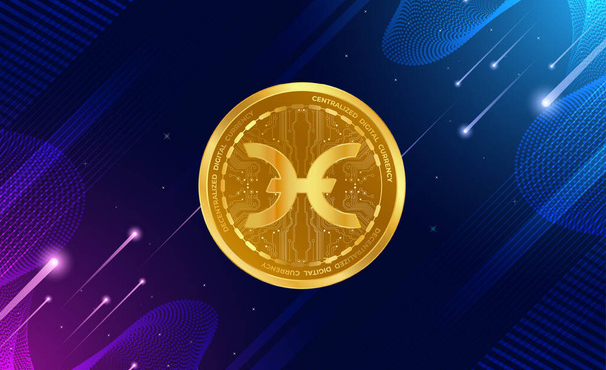-
 Bitcoin
Bitcoin $77,582.7508
-2.72% -
 Ethereum
Ethereum $1,484.8733
-4.90% -
 Tether USDt
Tether USDt $0.9991
-0.06% -
 XRP
XRP $1.8190
-6.84% -
 BNB
BNB $558.9330
-0.67% -
 USDC
USDC $0.9998
-0.06% -
 Solana
Solana $105.8173
-3.99% -
 Dogecoin
Dogecoin $0.1474
-4.02% -
 TRON
TRON $0.2294
-2.85% -
 Cardano
Cardano $0.5677
-7.00% -
 UNUS SED LEO
UNUS SED LEO $9.1640
1.91% -
 Toncoin
Toncoin $3.0205
-3.48% -
 Chainlink
Chainlink $11.3410
-3.03% -
 Avalanche
Avalanche $16.3752
-6.49% -
 Stellar
Stellar $0.2205
-7.38% -
 Shiba Inu
Shiba Inu $0.0...01104
-2.53% -
 Hedera
Hedera $0.1502
-8.41% -
 Sui
Sui $1.9322
-6.31% -
 MANTRA
MANTRA $6.1619
-1.24% -
 Bitcoin Cash
Bitcoin Cash $273.1447
-3.59% -
 Litecoin
Litecoin $71.3781
-2.06% -
 Dai
Dai $0.9999
-0.04% -
 Polkadot
Polkadot $3.4140
-6.57% -
 Ethena USDe
Ethena USDe $0.9986
-0.07% -
 Bitget Token
Bitget Token $4.0704
-2.58% -
 Hyperliquid
Hyperliquid $12.2616
1.62% -
 Pi
Pi $0.5705
-2.24% -
 Monero
Monero $196.1775
-4.56% -
 OKB
OKB $51.6798
-1.63% -
 Uniswap
Uniswap $4.8529
-6.54%
How to sell Holo coins safely
When selling Holo coins, consider security measures such as choosing a trustworthy platform, verifying identity, using strong passwords, and enabling two-factor authentication.
Nov 25, 2024 at 08:08 am

How to Sell Holo Coins Safely
As with any cryptocurrency transaction, you need to consider the security of your Holo (HOT) coins before selling them. This guide will provide you with the steps to securely sell your Holo coins, ensuring that your funds and personal information remain protected throughout the process.
1. Understand Where to Sell Holo Coins
- Centralized Exchanges: These platforms, such as Binance, Coinbase, and Kraken, allow you to trade cryptocurrencies, including Holo, with other users. They generally provide a user-friendly interface and support multiple payment methods. However, they require KYC verification and may charge fees for transactions.
- Decentralized Exchanges (DEXs): DEXs, such as Uniswap and PancakeSwap, facilitate peer-to-peer trading of cryptocurrencies without the need for an intermediary. They offer anonymity and low fees, but may have limited liquidity and can be more complex to use.
- Peer-to-Peer (P2P) Platforms: These platforms, such as LocalBitcoins and Paxful, connect buyers and sellers directly, allowing them to negotiate terms and payment methods. P2P platforms offer privacy and flexibility, but require caution as they are less regulated.
2. Choose a Trustworthy Platform
- Reputation and Reviews: Before selecting an exchange or platform, research its reputation by reading reviews from other users and industry experts. Look for platforms with a proven track record of security and customer support.
- Security Measures: Ensure that the platform employs robust security measures, such as two-factor authentication (2FA), SSL encryption, and secure storage of funds. Check if they have undergone independent security audits.
- Regulation and Compliance: If possible, opt for platforms that are regulated by reputable financial authorities. This provides an additional layer of protection and recourse in case of disputes.
3. Verify Your Identity
- Centralized Exchanges: Most centralized exchanges require users to complete KYC verification, which involves providing personal information and proof of identity. This is done to prevent money laundering and other illicit activities.
- DEXs and P2P Platforms: DEXs typically do not require KYC verification, while P2P platforms may have varying requirements. However, it is important to be aware of the potential risks associated with selling HOT coins anonymously.
4. Sell Your Holo Coins
- Centralized Exchanges: Once your account is verified, navigate to the trading section, select the HOT/trading pair, and input the number of coins you want to sell. Set the order type (market order, limit order, etc.) and review the transaction details before executing the sale.
- DEXs: Connect your wallet to the DEX and navigate to the trading interface. Select the HOT/trading pair, input the amount you want to sell, and set the slippage tolerance. Review the transaction details and approve the smart contract interaction to execute the sale.
- P2P Platforms: Create an account, select the HOT sale option, and specify the amount and payment method you prefer. The platform will connect you with potential buyers. Negotiate the terms and payment arrangements privately.
5. Withdraw Your Funds
- Centralized Exchanges: After the sale is complete, withdraw your funds to a secure hardware wallet or software wallet. Carefully check the withdrawal address and network before confirming the transaction.
- DEXs: Withdraw your earned funds to a wallet that supports the blockchain of the trading pair. Review the transaction details and ensure that the wallet address is correct.
- P2P Platforms: Once the payment is received, release the agreed-upon amount of HOT coins to the buyer. Carefully verify the payment before completing the transaction.
Additional Security Tips:
- Use Strong Passwords: Create strong and unique passwords for all your cryptocurrency accounts. Avoid using common words or phrases that can be easily guessed.
- Enable 2FA: Set up two-factor authentication (2FA) to add an extra layer of protection to your accounts. This requires you to enter a one-time code from your mobile device or email address whenever you log in or make changes to your account.
- Store Your Coins Offline: Store the majority of your Holo coins in a secure hardware wallet or cold storage solution, which is not connected to the internet. This protects your funds from online hacking attempts and malware.
- Be Aware of Scams: Be cautious of phishing emails, impostor websites, and unsolicited investment offers. Never share your private keys or sensitive information with anyone.
- Educate Yourself: Stay updated on the latest security practices and industry news related to cryptocurrency trading. Continuous education can help you identify and avoid potential risks.
Disclaimer:info@kdj.com
The information provided is not trading advice. kdj.com does not assume any responsibility for any investments made based on the information provided in this article. Cryptocurrencies are highly volatile and it is highly recommended that you invest with caution after thorough research!
If you believe that the content used on this website infringes your copyright, please contact us immediately (info@kdj.com) and we will delete it promptly.
- MEXC Launches BTC Fixed Saving Event with Up to 99% APR, Preceding Babylon (BABY) Token Listing
- 2025-04-09 22:05:13
- Hyperliquid (HYPE) Is Showing Strength At A Time When Bitcoin And Stocks Are In The Gutter
- 2025-04-09 22:05:13
- Outperforming Dogecoin (DOGE), Mutuum Finance (MUTM) Has Turned 2% on Its Head
- 2025-04-09 22:00:12
- #title I Rarely Post Comments About Ethereum Because Many Friends Hold Large Positions
- 2025-04-09 22:00:12
- As the macro-economic uncertainty increases, new investment options arise in the crypto world.
- 2025-04-09 21:55:12
- Bitcoin (BTC) Price Falls Below $75,000 for the Second Time This Week, Pushing Weekly Losses to Over 11%
- 2025-04-09 21:55:12
Related knowledge

What is Ethereum’s Slashing mechanism and how to punish malicious behavior?
Feb 20,2025 at 03:08am
Key PointsOverview of slashingDifferent types of slashing in EthereumIncentives and consequences of slashingIdentifying and reporting slashed validatorsOngoing discussions and potential improvementsEthereum's Slashing Mechanism: Punishing Malicious BehaviorEthereum's slashing mechanism is an essential tool for ensuring network security and punishing mal...

What is the verifier node of Ethereum and how to become a verifier?
Feb 19,2025 at 06:00pm
The Verifier Node of Ethereum: A Comprehensive GuideKey Points:What is a Verifier Node?How to Become a Verifier NodeResponsibilities and Rewards of a Verifier NodeMinimum Requirements for Becoming a Verifier NodePotential Difficulties in Running a Verifier Node1. What is a Verifier Node?A Verifier Node is an independent entity on the Ethereum network th...

What is Ethereum’s staking, and how to participate and earn money?
Feb 19,2025 at 04:37pm
Key Points:Understanding Ethereum's Staking MechanismSteps to Participate in StakingBenefits and Rewards of StakingSecurity and Risk ConsiderationsTechnical Requirements and Hardware OptionsPotential Challenges and Troubleshooting TipsFAQs on Ethereum StakingWhat is Ethereum's Staking?Proof-of-Stake (PoS) is a consensus mechanism used in blockchain netw...

What is Ethereum’s DAO (Decentralized Autonomous Organization) and how does it work?
Feb 20,2025 at 03:12am
Key PointsDefinition and Structure of a DAOGovernance and Decision-Making in DAOsBenefits and Use Cases of DAOsChallenges and Limitations of DAOsWhat is Ethereum's DAO (Decentralized Autonomous Organization) and How Does It Work?Definition and Structure of a DAOA Decentralized Autonomous Organization (DAO) is an innovative governance and management fram...

What is Ethereum's multi-signature wallet and how to improve security?
Feb 20,2025 at 02:18pm
Key Points:Understanding the Concept of a Multi-Signature WalletBenefits and Drawbacks of Multisig WalletsRequirements for Setting Up a Multisig WalletStep-by-Step Guide to Generating a Multisig WalletImplementing Strategies for Enhanced Security1. Understanding the Concept of a Multi-Signature WalletA multi-signature (multisig) wallet in the Ethereum e...

What is Ethereum's oracle and how to provide data for smart contracts?
Feb 21,2025 at 01:30am
Key Points:Understanding the concept of oracles in EthereumExploring different types of oraclesDetailed guide on how to provide data for smart contractsAddressing potential challenges and considerationsWhat is Ethereum's Oracle?Oracles are crucial components in the Ethereum ecosystem, enabling smart contracts to access real-world data and off-chain even...

What is Ethereum’s Slashing mechanism and how to punish malicious behavior?
Feb 20,2025 at 03:08am
Key PointsOverview of slashingDifferent types of slashing in EthereumIncentives and consequences of slashingIdentifying and reporting slashed validatorsOngoing discussions and potential improvementsEthereum's Slashing Mechanism: Punishing Malicious BehaviorEthereum's slashing mechanism is an essential tool for ensuring network security and punishing mal...

What is the verifier node of Ethereum and how to become a verifier?
Feb 19,2025 at 06:00pm
The Verifier Node of Ethereum: A Comprehensive GuideKey Points:What is a Verifier Node?How to Become a Verifier NodeResponsibilities and Rewards of a Verifier NodeMinimum Requirements for Becoming a Verifier NodePotential Difficulties in Running a Verifier Node1. What is a Verifier Node?A Verifier Node is an independent entity on the Ethereum network th...

What is Ethereum’s staking, and how to participate and earn money?
Feb 19,2025 at 04:37pm
Key Points:Understanding Ethereum's Staking MechanismSteps to Participate in StakingBenefits and Rewards of StakingSecurity and Risk ConsiderationsTechnical Requirements and Hardware OptionsPotential Challenges and Troubleshooting TipsFAQs on Ethereum StakingWhat is Ethereum's Staking?Proof-of-Stake (PoS) is a consensus mechanism used in blockchain netw...

What is Ethereum’s DAO (Decentralized Autonomous Organization) and how does it work?
Feb 20,2025 at 03:12am
Key PointsDefinition and Structure of a DAOGovernance and Decision-Making in DAOsBenefits and Use Cases of DAOsChallenges and Limitations of DAOsWhat is Ethereum's DAO (Decentralized Autonomous Organization) and How Does It Work?Definition and Structure of a DAOA Decentralized Autonomous Organization (DAO) is an innovative governance and management fram...

What is Ethereum's multi-signature wallet and how to improve security?
Feb 20,2025 at 02:18pm
Key Points:Understanding the Concept of a Multi-Signature WalletBenefits and Drawbacks of Multisig WalletsRequirements for Setting Up a Multisig WalletStep-by-Step Guide to Generating a Multisig WalletImplementing Strategies for Enhanced Security1. Understanding the Concept of a Multi-Signature WalletA multi-signature (multisig) wallet in the Ethereum e...

What is Ethereum's oracle and how to provide data for smart contracts?
Feb 21,2025 at 01:30am
Key Points:Understanding the concept of oracles in EthereumExploring different types of oraclesDetailed guide on how to provide data for smart contractsAddressing potential challenges and considerationsWhat is Ethereum's Oracle?Oracles are crucial components in the Ethereum ecosystem, enabling smart contracts to access real-world data and off-chain even...
See all articles























































































